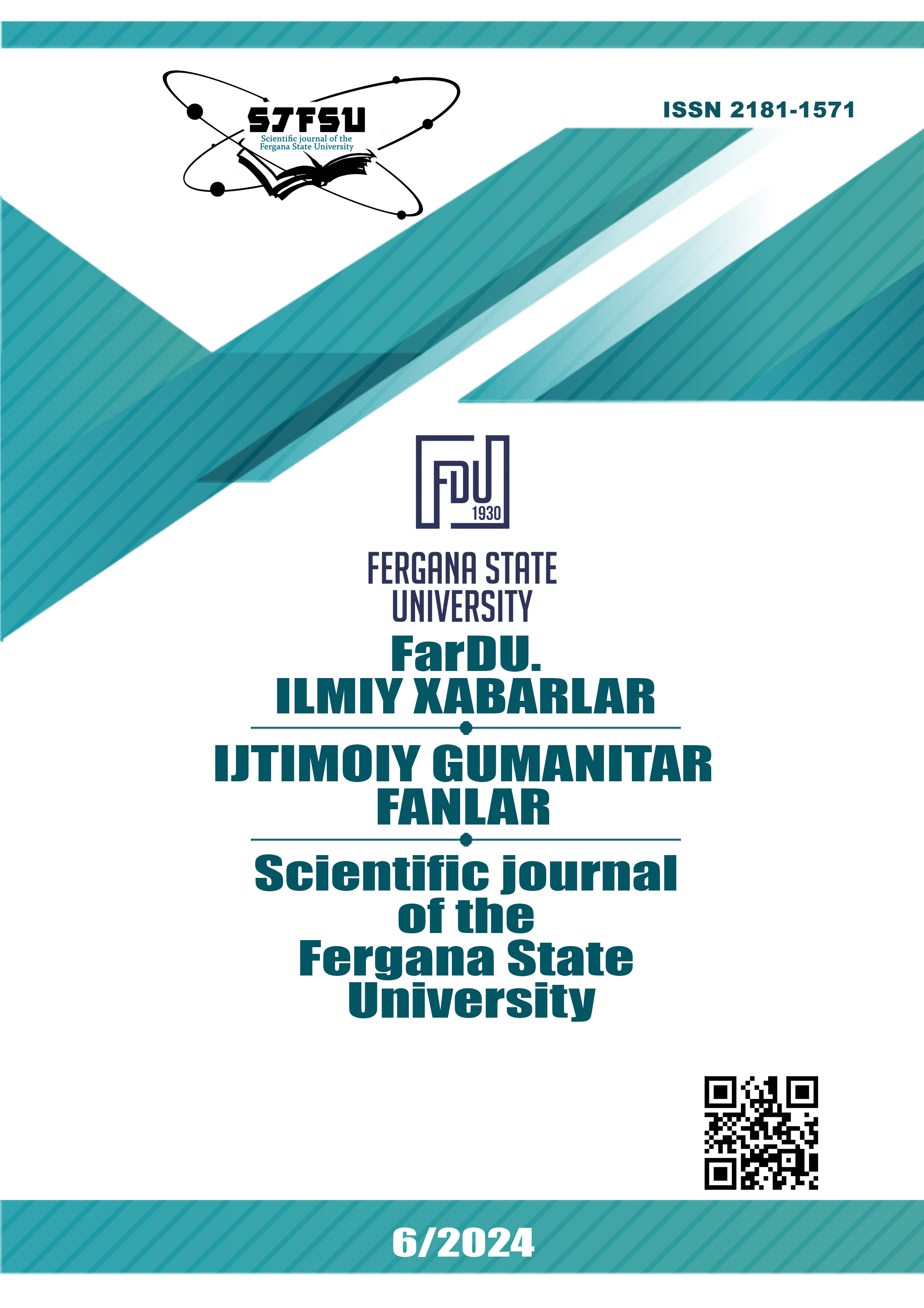NEOLOGISM AS A UNIT OF ANALYSIS IN COMPUTATIONAL LINGUISTICS
Keywords:
neologism, computational linguistics, corpus, NLP, uzbek language, Covid-19Abstract
In this article, neologisms as a unit of analysis from a large corpus and their linguistic features are studied. Our investigation describes our scientific observations carried out within the project (2024-2025) called "Creation of the atamacom.uz software platform and mobile applications that automatically provide the Uzbek alternative of new words and terms based on artificial intelligence" (2024-2025). According to this, the fact that neologisms entering various areas of our society under the influence of the English language are actively entering the vocabulary of our language, especially in the example of brand names, advertising slogans, clothing, food, science and technology concepts.
References
Yiting Li Sources of English Neologisms // Proceedings of the 2nd International Conference on Social Psychology and Humanity Studies DOI: 10.54254/2753-7048/42/20240854. – P. 213.
OʻzME. Birinchi jild. Toshkent, 2000-yil/ https://uz.wikipedia.org/wiki/Neologizmlar
https://www.izohli.uz/words/NEOLOGIZM
Evelyn R. Meaning through Context ‒ The Case of Discourse Neologisms: A Lexicological Approach to the Semiotic Nature and Function of Discourse Neologisms as an Extension to the Lexicographical Approach of Discourse Glossaries for COVID-19. 2022. https://www.proquest.com/openview/a03d0e1e79f0f2777c736b15b736c463/1?pq-origsite=gscholar&cbl=18750&diss=y
Tsun-Jui Liu, Shu-Kai Hsieh, Laurent PREVOT Observing Features of PTT Neologisms: A Corpus-driven Study with N-gram Model // Proceedings of the Twenty-Fifth Conference on Computational Linguistics and Speech Processing (ROCLING 2013). – P. 250-259.
Muhammad A, Zhiyong D., Iram A., Nisar M. Linguistic analysis of neologism related to coronavirus (COVID-19). Social Sciences & Humanities Open 4 (2021) 100201/ journal homepage: www.sciencedirect.com/journal/social-sciences-and-humanities-open
https://uz.wikipedia.org/wiki/Neologizmlar
Abdurakhmonova, N. (2021). Formal-Functional Models of The Uzbek Electron Corpus. Anglisticum. Journal of the Association-Institute for English Language and American Studies, 10(8), 59-66.
Sharipbay, A., Shirinova, R., Abdurakhmonova, N., & Qodirova, Z. (2023). Ontological knowledge based models representing medicine terminology. Advances in Social Sciences and Economics, 1(1), 4.
Абдурахмонова, Н., & Бойсариева, С. (2023). Tabiiy tilni qayta ishlashda (nlp) okkazionalizmlarning morfem tahlili. Международный журнал искусство слова, 6(3).
Abdurakhmonova, N., Tuliyev, U., Ismailov, A., & Abduvahobov, G‘. (2022). Uzbek electronic corpus as a tool for linguistic analysis. In Компьютерная обработка тюркских языков. TURKLANG 2022 (pp. 231-240).
Isroilov, J., & Abdurakhmonova, N. (2018). Personal names spell-checking–a study related to Uzbek. Journal of Social Sciences and Humanities Research, 6(02), 1-6.
Downloads
Published
Issue
Section
License
Copyright (c) 2025 Scientific journal of the Fergana State University

This work is licensed under a Creative Commons Attribution-NonCommercial-NoDerivatives 4.0 International License.

